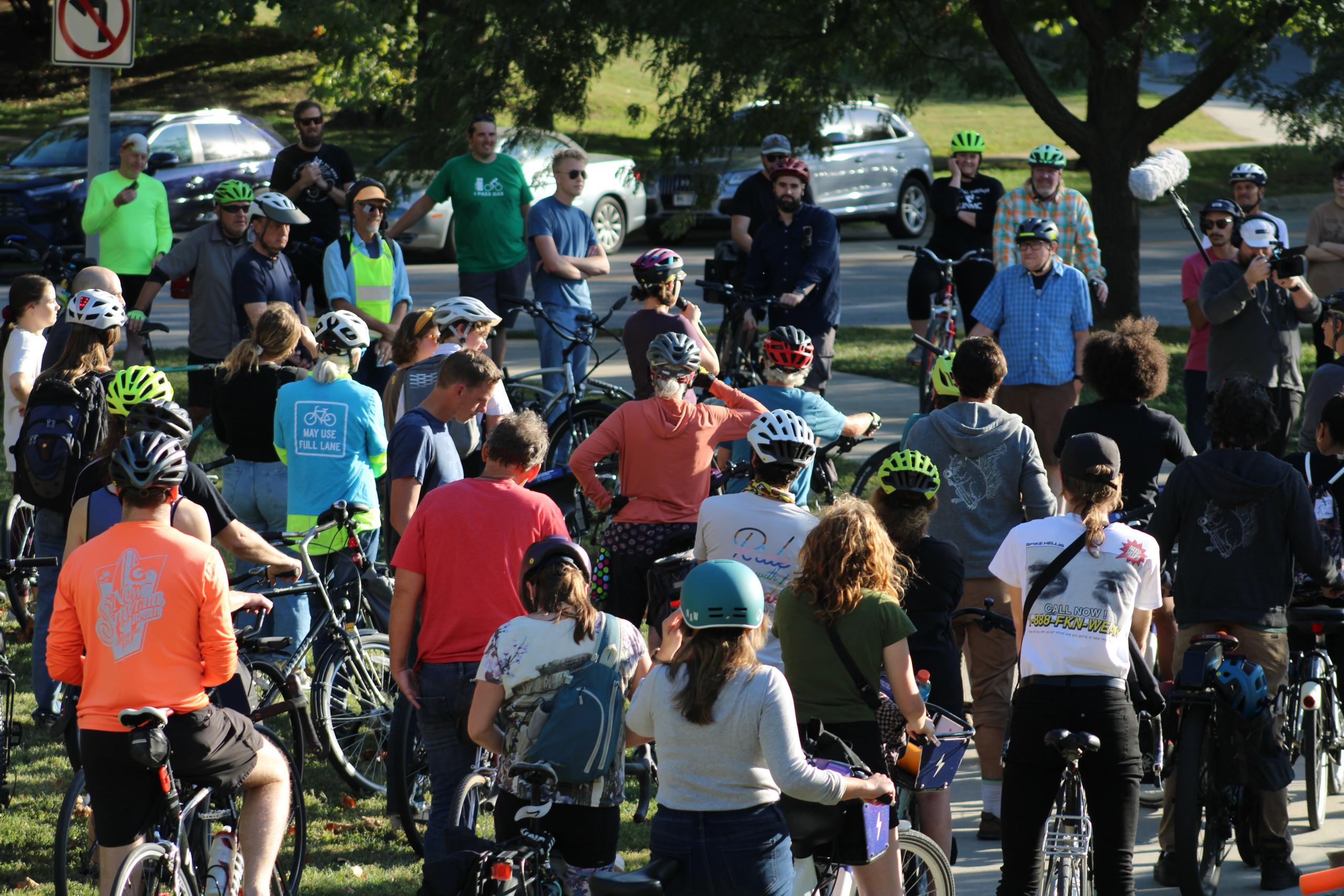Join us Friday, October 18 at 8 a.m. for our monthly Coffee Chat. This month we are chatting with Bridgit Kuenning-Pollpeter, president of the Nebraska chapter of the National Federation of the Blind at the Hardy Coffee at the Highlander
I’m Bridgit Kuenning-Pollpeter. I was born in Omaha but moved a lot as a child. But I’ve been situated back in Omaha for about 30 years now. I live here with my husband and our 2 sons. My husband is also blind.
When I was 22, I started to become blind from a viral infection. At this point, I obviously stopped driving, and was exposed to public transportation and all its facets. I joined the National Federation of the Blind, which is a consumer organization working to change perceptions about blindness, creating fair and equal treatment for blind people. The NFB is involved in national, state and local levels of legislation to community engagement activities and everything in between. I’m the president of the Omaha chapter and serve on our Nebraska affiliate board.
I graduated in December with my MFA in writing from UNO. I currently do freelance marketing. Next year, I plan to return to UNO for my MA in English. I’m also a stay-at-home parent.
We asked Bridgit five questions:
1. What is your preferred mode of transportation?
Because of the lack and frequency of buses in Omaha, especially in my neighborhood, I usually opt for Lyft these days. And since having children, I prefer rideshare because of the convenience factor.
2. What, in your opinion, is the greatest transportation challenge for visually impaired individuals in Omaha?
What is deemed a challenge for one blind person may not be considered a challenge for another. This question’s answer will vary blind person to blind person. However, the lack of consistency and frequency in buses is a big problem. Many people I know, myself included, experience late buses, and far too often, buses that don’t show up. People who move from other states where public transit is populated by a variety of people find Omaha’s transit system frustrating and challenging. It’s also difficult to schedule a day based on Omaha’s system. Routes and times are not frequent enough for it to always make sense to take the bus. Another challenge is the city’s inability to clear paths in the winter. Many people I speak with find themselves walking far into the street when it snows because of poorly cleared sidewalks. And in some areas, there are no sidewalks, not always making it safe to walk to a bus stop. All these problems are topics blind people bring up, but clearly, each is not specific to blindness.
Metro’s website is pretty accessible, but some routes are provided in PDFs, which aren’t always easy to read, not to mention are an outdated way of providing info on a website. It would be great if Metro used actual blind people to beta test its website. It also needs an app for all users; just saying.
3. What has been the greatest transportation success in Omaha for the blind/visually impaired?
The 2 biggest successes for Metro, and again, not necessarily specific to blind people, but certainly make our lives easier, are the My Ride feature of the website, although an actual app would be nice. And the automated systems that give stop announcements on buses.
4. How does transportation influence the mission and activities of the National Federation of the Blind?
Transportation plays a huge role in NFB activities. For years, our Omaha chapter had volunteer drivers to transport members to and from our monthly meetings. Several years ago now, the volunteers were no longer able to provide this service. It drastically impacted our membership. Many members did not have access to public transportation, or in the case of rideshare, could not afford it. And there’s also the issue of available times. It’s not always convenient, and not a lot of people want to sit on a bus for an hour. . NFB Omaha has always tried to choose meeting locations that are central to a bus stop, but few of our members use the bus in general. Getting to and from state and local activities is impacted for the same reasons. For most blind people, transportation, or lack-thereof, is one of our biggest obstacles.
5. If you could magically change one thing about the transportation systems in Omaha, without limit to budget or feasibility, what would it be?
If I could wave my magic wand and make any change to Omaha’s transit would be to have more buses go all the way back and forth across the city north and south. Getting north and south in Omaha is a challenge for all people. Also, all buses would be more frequent, like every 30 to 15 minutes all day, every day, including Sunday’s. And Omaha would drop Moby and work with Lyft and Uber on a paratransit system, which has had success in other cities.

